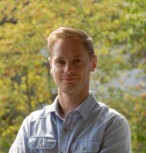DNA reveals the past and future of coral reefs
New DNA techniques are being used to understand how coral reacted to the end of the last ice age in order to better predict how they will cope with current changes to the climate. James Cook Univer

From 2005 to 2022, the main node of the ARC Centre of Excellence for Coral Reef Studies was headquartered at James Cook University in Townsville, Queensland (Australia)








Abstract: Indigenous knowledges remain on the fringe of policy and practice in environmental governance. Often conceptualized as “Traditional Ecological Knowledge”, the environmental knowledges and practices of Indigenous peoples have frequently been incorporated only instrumentally within development interventions, conservation programmes, and co-management plans. While everyday environmental governance continues in practice within Indigenous communities, formal policy- and decision-making continues to marginalize these experiences. In this presentation, I draw on two cases to explore the intersection of Indigenous knowledge and formal environmental governance frameworks. The first case revolves around a network of kamayoq – Indigenous, community-based specialists engaged in adult, peer-to-peer education programmes in the Peruvian Andes. I explore the challenges of integrating Indigenous knowledge into broader development programmes, and the unintended consequences of establishing nation-wide Indigenous professionalization programmes. The second case explores the limits to water co-governance frameworks in British Columbia, Canada. I use the notion of conflicting ‘water ontologies’ to illustrate the ways in which Indigenous knowledge is politicized and de-politicized in the rush to eradicate proliferating boil water advisories. Drawing on decolonial scholarship, I argue that these cases illustrate the need to move beyond ‘integrationist’ perspectives on Indigenous knowledge, and towards a ‘reciprocity of knowledges’. This approach offers a way of building community-based environmental governance programmes that embrace diversity and difference, and do not once again map over Indigenous knowledges and ecologies. I illustrate that this approach can transform how we think about (adaptive) environmental governance institutions and the ecologies that they (re)produce. This transformational component is politically generative and environmentally re-generative, as it grounds these alternative environmental governance perspectives in a pursuit for Indigenous sovereignty, and in an appreciation of Indigenous ontologies and ecologies. I conclude by reflecting on how these insights might inform policy-making in environmental co-governance.
Biography: Julian is a Post-Doctoral Fellow in the Institute for Resources, Environment, and Sustainability, and a member of the Program on Water Governance and Environment and Development: Gender, Equity, Sustainability research teams. Julian’s work focuses on the intersection between the politics of knowledge, social justice, and community-based environmental governance. His current work explores the rollout of small-scale water filtration facilities among BC’s First Nations communities – an approach that gained political expediency due to the recently introduced Water Sustainability Act. This work focuses on the intersections between Indigenous conceptions of water in nature, and techno-scientific approaches to delivering ‘clean water’ to First Nations communities. Julian’s doctoral (UBC, geography) research explored the revival of Indigenous, peer-to-peer environmental knowledge sharing practices in the Peruvian Southern Andes. Based on this research, Julian is currently working on a book manuscript, titled “Re-Animating Andean Worlds: Decolonization and the politics of Indigenous professionalization in the Peruvian Andes” (Duke University Press). Previous projects include research as an NGO consultant into adaptation to climate change in rural Nepal, and graduate research into inclusive waste management through recyclers’ cooperatives in São Paulo, Brazil. Julian’s publications related to these projects are available on Google Scholar, Academia.edu, or Research Gate.
New DNA techniques are being used to understand how coral reacted to the end of the last ice age in order to better predict how they will cope with current changes to the climate. James Cook Univer
A new study on the effects of climate change in five tropical countries has found fisheries are in more trouble than agriculture, and poor people are in the most danger. Distinguished Profess
James Cook University researchers have found brightly coloured fish are becoming increasingly rare as coral declines, with the phenomenon likely to get worse in the future. Christopher Hemingson, a
Researchers working with stakeholders in the Great Barrier Reef region have come up with ideas on how groups responsible for looking after the reef can operate more effectively when the next bleaching
Abstract: As marine species adapt to climate change, their heat tolerance will likely be under strong selection. Individual variation in heat tolerance and its heritability underpin the potential fo
Abstract: The Reef Ecology Lab in KAUST’s Red Sea Research Center explores many aspects of movement ecology of marine organisms, ranging from adult migrations to intergenerational larval dispersal
Abstract: Macroalgal meadows are a prominent, yet often maligned component of the tropical seascape. Our work at Ningaloo reef in WA demonstrate that canopy forming macroalgae provide habitat for ad
Abstract: Sharks are generally perceived as strong and fearsome animals. With fossils dating back at least 420 million years, sharks are not only majestic top predators but they also outlived dinosa
Abstract: Connectivity plays a vital role in many ecosystems through its effects on fundamental ecological and evolutionary processes. Its consequences for populations and metapopulations have been
Abstract: Evolution of many eukaryotic organisms is affected by interactions with microbes. Microbial symbioses can ultimately reflect host’s diet, habitat range, and even body shape. However, how
Abstract: The past few years have seen unprecedented coral bleaching and mortality on the Great Barrier Reef (GBR) but the consequences of this on biodiversity are not yet known. This talk will expl